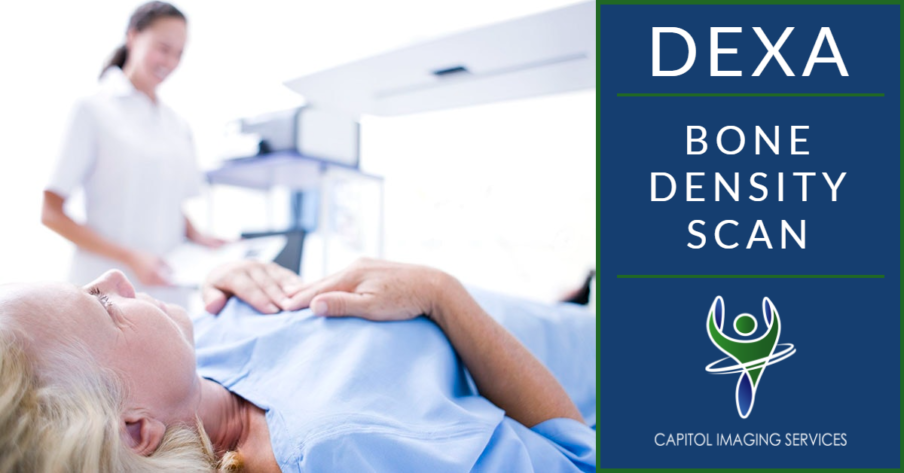Dexa Bone Density Study - What is it?
Dual Energy X-ray Absorptiometry (DEXA) scan is a painless, medical imaging study using very low levels of x-rays to measure the density of a patient's bones.
As part of a DEXA studies, certain Capitol Imaging Services (CIS) centers offer Single Energy (SE) femur exams. This quick 15-second SE femur exam is designed to produce a high resolution image of the entire femur with a very low effective radiation dose. An Atypical Femur Fracture (AFF) assessment can be conveniently performed at the time of a hip bone density scan, with little or no body repositioning and a minimal increase in exam time.
Capitol Imaging Services was the first independent radiology provider in the New Orleans market to offer SE femur exams on a DEXA bone density study platform for the assessment of features associated with atypical femur fractures (AFF). This first-of-its-kind capability assists doctors and health care providers in their assessment of potential AFF in people who have been on anti-resorptive treatments such as bisphosphonates.
Dexa + FRAX to Evaluate Patient Risk
Another DEXA technology advancement is a tool developed by the World Health Organization called FRAX. FRAX allows the incorporation of a patient’s clinical risk factors to more easily identify those at greatest risk of fracture and in need of treatment.
All DEXA exams completed by CIS automatically apply the FRAX component.
When would I get a Dexa Bone Density Scan?
Despite advances in diagnostic techniques and therapies, many people at high risk of osteoporotic fractures are currently untreated. Bone density testing is strongly recommended if you:
- are a post-menopausal woman and not taking estrogen
- have a personal or maternal history of hip fracture or smoking
- are a post-menopausal woman who is tall (over 5 feet 7 inches) or thin (less than 125 pounds)
- are a man with clinical conditions associated with bone loss, such as rheumatoid arthritis, chronic kidney or liver disease
- use medications that are known to cause bone loss, including corticosteroids such as Prednisone, various anti-seizure medications such as Dilantin and certain barbiturates, or high-dose thyroid replacement drugs
- have type 1 (formerly called juvenile or insulin-dependent) diabetes, liver disease, kidney disease or a family history of osteoporosis
- have high bone turnover, which shows up in the form of excessive collagen in urine samples
- have a thyroid condition, such as hyperthyroidism
- have a parathyroid condition, such as hyperparathyroidism
- have experienced a fracture after only mild trauma
- have had x-ray evidence of vertebral fracture or other signs of osteoporosis.
DEXA Body Composition Analysis has been utilized in a variety of clinical and research applications in the fields of nutrition, metabolism and exercise physiology. It has been offered in weight-loss, bariatric surgery, gastrointestinal and eating disorder clinics to assess the effect of diet, exercise and chronic diseases. A medical provider may recommend Body Composition Analysis to:
- develop complete physical fitness profiles for clients
- monitor body fat loss and muscle growth resulting from exercise
- provide baseline date for nutritional counseling and treatment of obesity
- describe changes due to growth, development, maturation and aging
- maximize the performance of athletes.
What Will I Experience?
You will not feel anything during a DEXA scan, You will be asked to lie still on the scan table but you will be able to breathe normally throughout the procedure. The scanner will pass over one area of your skeleton. A dual energy beam of very low dose x-rays passes through that area of your body and is measured by a detector.
DEXA technology works by measuring the amount of x-rays that are absorbed by the bones in your body. The two x-ray energies allow the machine to differentiate between bone and soft tissue, giving a very accurate estimation of bone density. The radiologist will produce a report for your physician based on the bone density measurements and your medical history.
Typically, a bone density test usually takes 10 to 30 minutes to complete.



